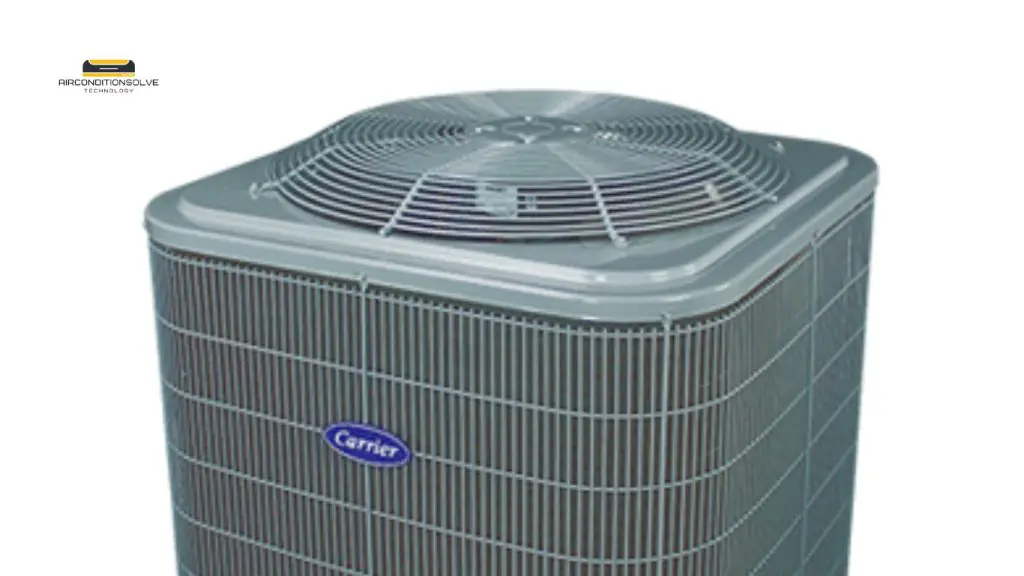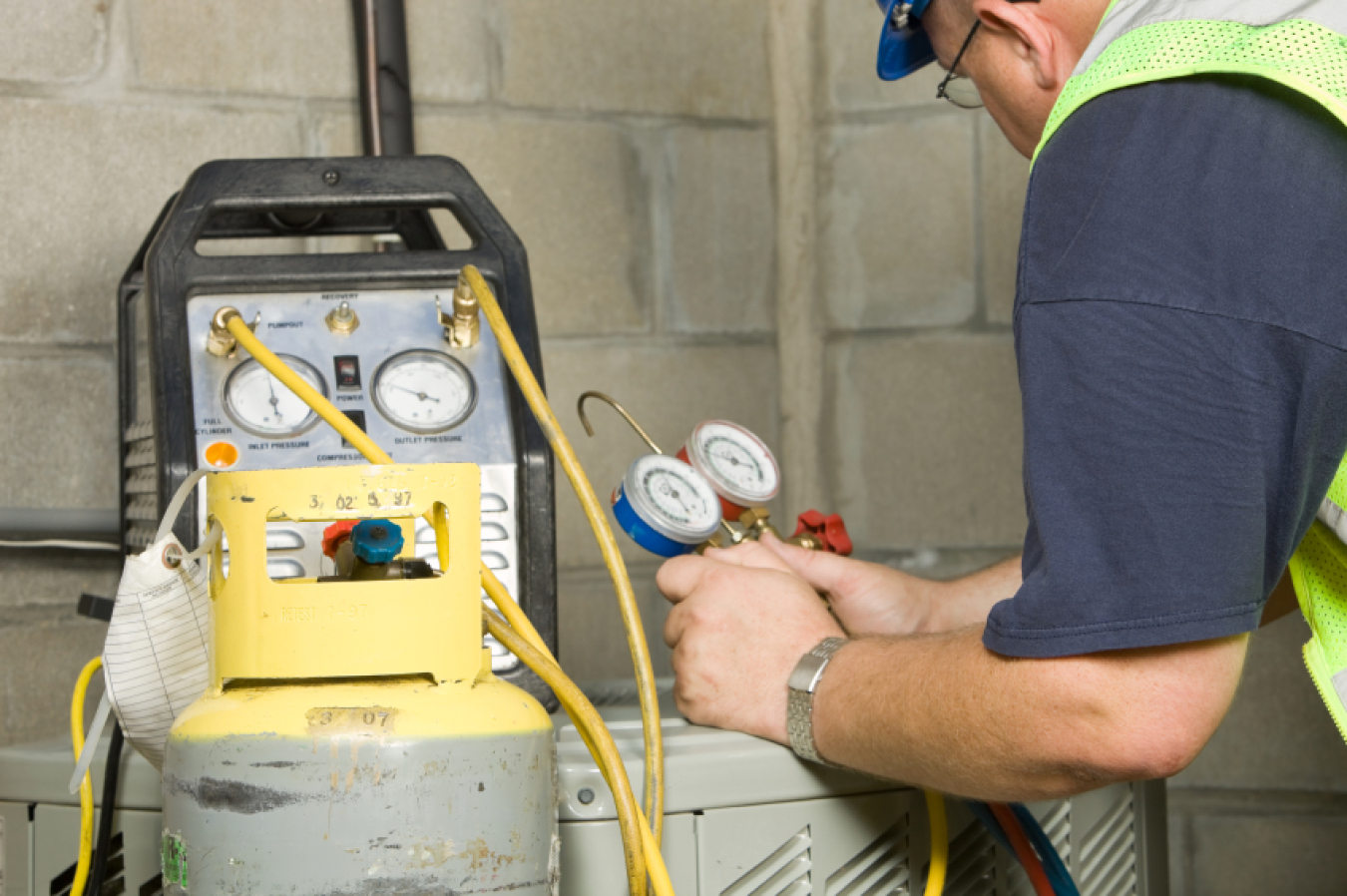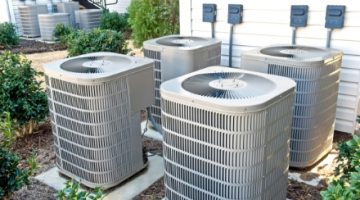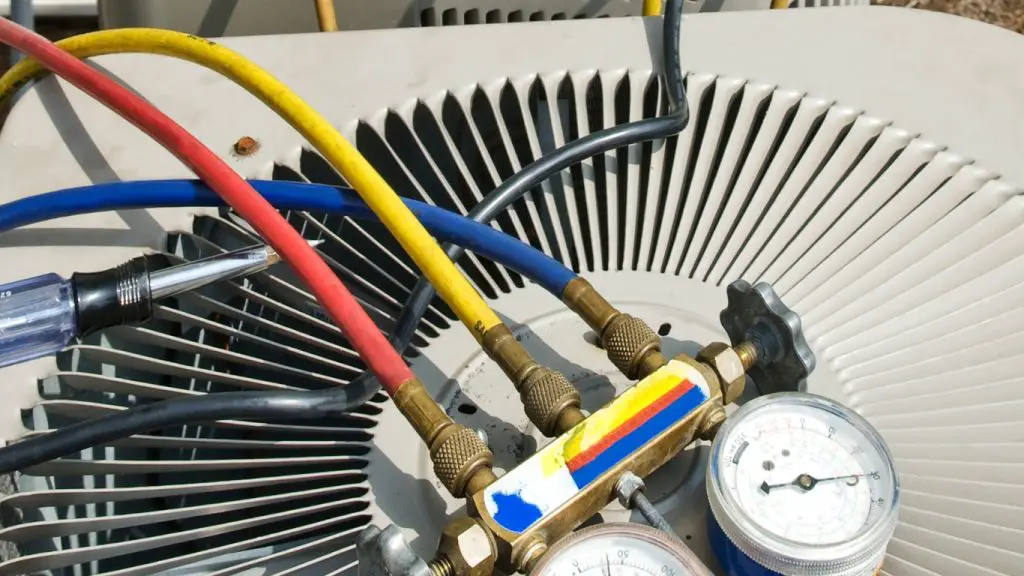HVAC air conditioners in homes commonly experience problems such as inadequate cooling and airflow issues. Inefficient cooling and poor airflow can result from dirty filters, blocked vents, or faulty motors.
These issues can lead to discomfort, higher energy bills, and potential damage to the HVAC system.
1. Refrigerant Leaks
Refrigerant leaks can be a common problem with HVAC air conditioners in homes. These leaks can lead to a decrease in cooling efficiency, resulting in discomfort during hot summer months.
Leaks Can Cause A Decrease In Cooling Efficiency
When refrigerant leaks occur, it can cause a decrease in the overall cooling efficiency of your HVAC system. The refrigerant is responsible for absorbing heat from the indoor air and removing it from your home. However, when there is a leak, the refrigerant levels drop, making it difficult for the air conditioner to adequately cool your space. This can lead to a struggle in maintaining a comfortable indoor temperature and an increase in energy consumption as the system works harder to compensate.
Symptoms Of Refrigerant Leaks
Detecting refrigerant leaks early is crucial to prevent further damage to your HVAC system. Here are some common symptoms that may indicate a refrigerant leak:
- Warm air blowing from the vents
- Inconsistent cooling or difficulty reaching the desired temperature
- An increase in energy bills
- Hissing or bubbling sounds coming from the refrigerant lines
- Frozen evaporator coils
Causes Of Refrigerant Leaks
Understanding the causes of refrigerant leaks can help you prevent them in the future. Some common causes include:
- Corrosion or damage to the refrigerant lines
- Poor installation or improper handling of the HVAC system
- Manufacturing defects
- Age and wear of the air conditioner
- Accidental punctures or leaks caused during maintenance or repairs
Steps To Fix Refrigerant Leaks
If you suspect a refrigerant leak in your HVAC system, it is important to take immediate action to prevent further damage. Here are the steps to fix refrigerant leaks:
- Contact a professional HVAC technician who specializes in air conditioning repair.
- The technician will perform a thorough inspection of your system to locate the source of the leak.
- Once the leak is identified, the technician will repair or replace the damaged components and ensure proper sealing.
- The technician will then recharge the refrigerant to the correct levels and test the system for any further leaks.
It’s important to address refrigerant leaks promptly to ensure the optimal performance of your HVAC system and enhance energy efficiency. Regular maintenance and timely repairs can help prevent such problems and keep your home cool and comfortable throughout the year.

2. Insufficient Airflow
Insufficient airflow is a common problem with HVAC air conditioners in homes, leading to inefficient cooling and potential damage to the system. Regular maintenance and cleaning of filters and vents can help address this issue.
Impact Of Insufficient Airflow On The System
Insufficient airflow in HVAC air conditioners can have a significant impact on the system’s overall performance and efficiency. When the airflow is not adequate, it affects the system’s ability to cool or heat your home effectively. This can result in uneven temperatures throughout your living spaces and a decreased comfort level. Additionally, insufficient airflow puts extra strain on your system, leading to higher energy consumption and increased wear and tear on its components. Therefore, addressing the issue of insufficient airflow is crucial in maintaining the performance and longevity of your HVAC system.
Causes Of Insufficient Airflow
There can be several reasons behind inadequate airflow in HVAC air conditioning systems. One common cause is a clogged or dirty air filter. Over time, the filter accumulates dust, debris, and other particles, restricting the airflow. Another possible cause is obstructed or closed vents and registers. Furniture or other objects blocking the vents can impede the smooth flow of air. Similarly, closed or partially closed registers restrict the passage of air, making it difficult for the system to distribute conditioned air effectively. A malfunctioning blower motor or fan, dirty coils, or leaky ducts can also contribute to inadequate airflow. Proper identification of the underlying cause is vital to effectively resolve the issue.
Signs Of Inadequate Airflow
Recognizing the signs of insufficient airflow can help homeowners address the problem before it worsens. Some noticeable indications include:
- Uneven cooling or heating throughout the house
- Hot or cold spots within certain rooms
- Increased energy bills without a corresponding increase in usage
- Reduced airflow from vents
- Frequent cycling of the HVAC system
- System not reaching the desired temperature
How To Improve Airflow
Improving the airflow in your HVAC system is crucial for ensuring optimal performance and comfort in your home. Here are some steps you can take to enhance airflow:
- Clean or replace the air filters regularly to avoid clogging and reduce strain on the system.
- Ensure vents and registers are not obstructed or blocked by furniture or other objects.
- Open all supply and return vents fully and ensure they are not closed or partially closed.
- Keep the outdoor unit and coils clean to facilitate effective heat transfer.
- If you suspect leaky ductwork, consider professional inspection and sealing to prevent air loss.
- Consider upgrading your blower motor or fan if it is malfunctioning, as this can greatly improve airflow.
3. Faulty Electrical Components
Common problems with HVAC air conditioners in homes include faulty electrical components such as malfunctioning wiring and problematic circuit breakers, which can cause issues with the cooling system’s performance. These components must be carefully inspected and repaired to ensure proper functioning and avoid potential safety hazards.
Importance Of Electrical Components In Hvac Systems
One of the essential components of HVAC systems are the electrical components, which play a crucial role in ensuring the efficient operation of your air conditioner. These components are responsible for powering the system, controlling various functions, and maintaining a comfortable indoor environment. Without properly functioning electrical components, your HVAC system may fail to regulate temperature effectively, leading to discomfort and potential damage.
Common Electrical Problems In Air Conditioners
Electrical problems are a common issue that homeowners may encounter with their HVAC air conditioners. These problems can arise due to several reasons, such as wear and tear, electrical surges, or even faulty installation. Being aware of these common electrical problems can help you identify and address issues promptly, preventing further damage to your system.
Here are some of the most common electrical problems you may experience:
- 1. Blown Fuses: A blown fuse in your air conditioner can disrupt the flow of electricity, causing the system to shut down. This issue often occurs when there is a power surge or if the electrical components within the unit are faulty.
- 2. Capacitor Malfunction: Capacitors are responsible for initiating the electrical currents in your air conditioner’s motors. When these components become faulty or fail, the motor may not start or run efficiently, resulting in poor cooling performance.
- 3. Wiring Issues: Faulty or damaged wiring can lead to various electrical problems in your HVAC system. Loose connections or frayed wires can disrupt the flow of electricity, cause short circuits, or even pose the risk of electrical fires.
Symptoms Of Faulty Electrical Components
Identifying the signs of faulty electrical components can help you diagnose issues before they escalate. Here are some common symptoms that may indicate a problem with your HVAC system’s electrical components:
- 1. Frequent Tripping: If your air conditioner keeps tripping the circuit breaker or blowing fuses, it could be a sign of an electrical problem. This often occurs when there is an overload or a short circuit within the system.
- 2. Inconsistent Operation: Notice irregularities in the operation of your air conditioner, such as random shutdowns, failure to start, or frequent cycling? These issues may indicate electrical problems that need professional attention.
- 3. Unusual Sounds or Smells: Strange buzzing sounds or burning odors coming from your HVAC unit could be a result of electrical malfunctions. It’s crucial to address these issues promptly to avoid further damage or potential safety hazards.
Troubleshooting And Repairing Electrical Problems
When facing electrical problems with your HVAC air conditioner, it’s essential to approach troubleshooting and repairs cautiously. While minor issues like loose connections can be fixed by homeowners, complex electrical repairs should be done by qualified professionals to ensure safety and prevent further damage.
Here are a few troubleshooting steps you can take for minor electrical problems:
- 1. Check Circuit Breakers and Fuses: Ensure that the circuit breaker for your air conditioner is in the proper position and that the fuses are intact.
- 2. Inspect Wiring: Examine the wiring connections for any signs of damage, such as frayed or loose wires. Tighten any loose connections or call a professional electrician to handle more serious issues.
- 3. Assess Capacitors: If you suspect a malfunctioning capacitor, visually inspect it for bulging or leaking. Replace any faulty capacitors with the help of a professional.
Remember, electrical repairs can be dangerous, so it’s always advisable to consult a qualified HVAC technician or electrician for any major electrical problems. They have the expertise and tools necessary to diagnose and repair complex issues effectively.

Credit: www.energy.gov
4. Thermostat Malfunctions
Thermostat malfunctions can be a common problem with HVAC air conditioners in homes, causing uneven cooling or heating. It’s important to address these issues promptly to ensure optimal comfort and energy efficiency.
4. Thermostat Malfunctions
The thermostat plays a crucial role in the functioning of HVAC air conditioners in homes. It is responsible for regulating and maintaining the desired temperature inside your house. However, just like any other component of an HVAC system, thermostats can experience malfunctions, causing disruptions in your cooling system. In this section, we will explore the role of the thermostat in cooling systems, common issues that can arise with thermostats, troubleshooting methods to identify thermostat problems, and the potential need for replacing or recalibrating the thermostat.
The Role Of The Thermostat In Cooling Systems
The thermostat acts as the brain of your air conditioning system, controlling the operation of the cooling cycles. It monitors the temperature in your home and sends signals to the air conditioner to turn on or off, depending on the desired temperature. By communicating with the HVAC system, the thermostat ensures that your home remains comfortable by maintaining a consistent temperature.
Common Issues With Thermostats
Thermostat malfunctions can occur due to various reasons. Some of the most common issues include:
- Incorrect temperature readings: A malfunctioning thermostat may display inaccurate temperature readings, leading to incorrect cooling cycles. This can result in your home being either too cold or too hot.
- Unresponsive controls: If the controls on the thermostat become unresponsive or fail to change the settings, it can indicate a problem with the thermostat’s internal wiring or circuitry.
- Short cycling: Short cycling refers to when the air conditioner turns on and off frequently and rapidly. This can be caused by a faulty thermostat that fails to maintain a steady temperature, resulting in increased energy consumption and potential damage to the HVAC system.
- Poor sensor placement: Sometimes, the thermostat’s temperature sensor may be poorly placed, leading to inaccurate temperature readings. This can occur if the sensor is exposed to direct sunlight, drafts, or other sources of heat.
Troubleshooting Thermostat Problems
- Check the power source: Ensure that the thermostat is receiving power from its source. If it’s battery-operated, replace the batteries. If it’s hard-wired, check the electrical connections.
- Inspect the wiring: Examine the wiring connected to the thermostat and look for any loose or damaged wires. Poor connections can interfere with the thermostat’s communication with the HVAC system.
- Calibrate the thermostat: If the temperature readings are consistently incorrect, you may need to recalibrate the thermostat. Refer to the manufacturer’s instructions for proper calibration methods.
- Clean the thermostat: Dust and debris can accumulate on the thermostat’s sensors, affecting its accuracy. Use a soft brush or compressed air to gently clean the thermostat and its surrounding area.
Replacing Or Recalibrating The Thermostat
If troubleshooting efforts do not resolve the thermostat issue, you may need to consider replacing or recalibrating it. It’s a good idea to contact a professional HVAC technician who can diagnose the problem accurately and recommend the most suitable solution. They can install a new thermostat or recalibrate the existing one to ensure optimal performance and temperature control in your home.
By being aware of the common problems associated with thermostats, you can take the necessary steps to maintain a properly functioning HVAC system and enjoy a comfortable indoor environment.
5. Drainage Issues
When it comes to HVAC air conditioners in homes, drainage issues are a common problem that homeowners often face. Proper drainage is crucial for the efficient operation of an air conditioner and to prevent any potential damage to your system. In this section, we will discuss the importance of proper drainage, the causes of drain clogs and leaks, signs to look out for, and how to address these drainage issues effectively.
Importance Of Proper Drainage In Air Conditioners
Proper drainage is vital for the optimal functioning of your air conditioner. A well-functioning drain system ensures that moisture or condensate produced by the cooling process is effectively removed from the unit. If not properly drained, this moisture can accumulate and lead to several issues, including:
- Reduced cooling efficiency: When the drain line is clogged, the water cannot drain properly, causing the air conditioner to work harder and less efficiently. This can result in higher energy bills and poor cooling performance.
- Mold and mildew growth: Excess moisture can create an ideal environment for mold and mildew to thrive. These harmful substances can not only lead to foul odors but also pose serious health risks to you and your family.
- Water damage: If water is not properly drained, it can overflow from the unit and cause damage to your walls, floors, and other nearby structures. Water leakage can be a costly problem to fix and may require extensive repairs.
Causes Of Drain Clogs And Leaks
Understanding the common causes of drain clogs and leaks is essential in preventing or addressing drainage issues. Here are some factors that can lead to drainage problems in air conditioners:
- Dirt and debris: Over time, dirt, dust, and other debris can accumulate in the drain line, leading to clogs.
- Biofilm: The warm and moist environment within the drain line can promote the growth of biofilm, a sticky layer of bacteria, fungi, and other microorganisms. This biofilm can obstruct the drain line and cause clogs.
- Algae growth: Algae thrive in moist environments and can easily grow in the drain line. As they grow, they can clog the drain and lead to leaks or water overflow.
Signs Of Drainage Problems
Identifying the signs of drainage problems early on can help you address the issue before it escalates. Look out for the following indicators:
- Water leakage or pooling around the unit
- Unusual gurgling or bubbling sounds coming from the drain line
- Slow draining or no drainage at all
- Presence of foul odors
- Inconsistent cooling performance
How To Address Drainage Issues
If you suspect or encounter drainage issues with your HVAC air conditioner, it is important to take prompt action. Here are steps you can take to address these problems:
- Inspect and clean the drain line: Periodically inspect the drain line for any dirt, debris, or biofilm accumulation. Use a mixture of water and bleach to clean the line and remove any clogs.
- Install a drain pan overflow switch: Consider installing a drain pan overflow switch as an added precautionary measure. This switch will automatically shut off the unit if the drain pan becomes full, preventing water damage.
- Regular maintenance: Schedule regular maintenance for your HVAC system, including professional cleaning of the drain line and overall inspection. A professional technician can spot potential drainage issues and rectify them before they cause further damage.
By ensuring proper drainage in your HVAC air conditioner, you can prolong the lifespan of your system, maintain its efficiency, and prevent costly repairs. Regular maintenance and timely intervention are crucial in tackling drainage problems and keeping your home comfortable.

Frequently Asked Questions For What Are Common Problems With Hvac Air Conditioners In Homes?
What Are Common Signs Of Hvac Air Conditioner Problems In Homes?
Common signs of HVAC air conditioner problems in homes include insufficient cooling, strange noises, frequent cycling, and high electricity bills. It’s important to address these issues promptly to avoid further damage and ensure optimal performance of your air conditioner system.
What Causes An Air Conditioner To Stop Working In Homes?
An air conditioner can stop working due to various reasons, such as a faulty thermostat, low refrigerant levels, a clogged air filter, or a malfunctioning compressor. Regular maintenance and timely repairs can help prevent these issues and keep your HVAC system running smoothly.
How Often Should Hvac Air Conditioners Be Serviced In Homes?
HVAC air conditioners in homes should be serviced at least once a year. Regular maintenance by a professional technician ensures that your air conditioner is clean, properly calibrated, and free from any potential issues or malfunctions. This helps prolong the lifespan of your system and maintain its efficiency.
Can I Fix Hvac Air Conditioner Problems In Homes By Myself?
While some minor HVAC air conditioner issues can be resolved by homeowners, it is generally recommended to seek professional help for more complex problems. Attempting repairs without the necessary knowledge and experience can lead to further damage or safety hazards.
It’s best to consult a licensed technician for proper diagnosis and repair.
Conclusion
To wrap it up, understanding the common problems with HVAC air conditioners in homes is crucial for homeowners to maintain a comfortable living environment. From refrigerant leaks and faulty thermostats to dirty filters and compressor issues, addressing these concerns promptly can save energy and prevent system breakdowns.
Regular maintenance and professional inspections play a vital role in ensuring the optimal functioning of HVAC systems, ultimately enhancing indoor air quality and extending the lifespan of the equipment. So, stay informed and take proactive measures to keep your air conditioner running smoothly.

